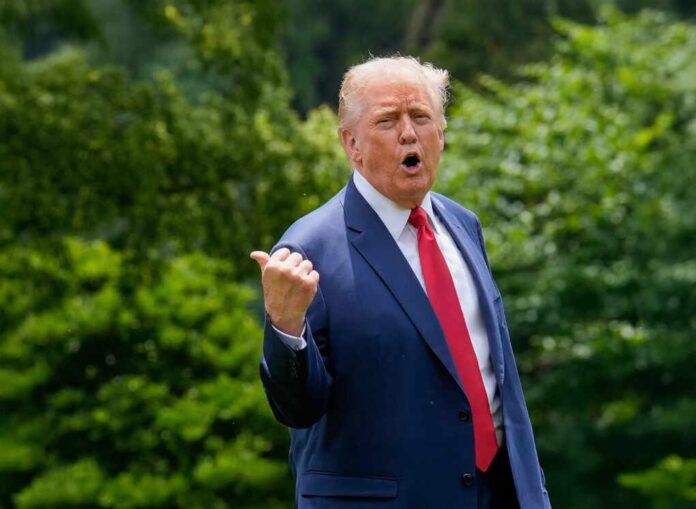
Are Trump’s recent actions on human trafficking truly helping, or are they dismantling the very infrastructure they claim to protect?
At a Glance
- The Trump administration cancels over $500 million in anti-trafficking grants.
- Executive orders impose restrictions on asylum and refugee admissions.
- Mercedes Schlapp claims Trump is combating trafficking, but specifics are unclear.
- Experts warn of increased risks for trafficking victims.
Trump Administration’s Bold Claims and Actions
Mercedes Schlapp recently claimed on Newsmax that President Trump, alongside a newly passed “one big, beautiful bill,” is making strides in eradicating human trafficking. Yet, this boast comes amidst a backdrop of significant policy shifts and controversial decisions. The administration has enacted sweeping executive actions, such as imposing a moratorium on asylum at the southern border and suspending the U.S. Refugee Admissions Program, citing trafficking as a justification. However, these measures face criticism for potentially increasing vulnerability to trafficking, especially among migrants and asylum seekers.
DOGE contract cancellations update that will make every American taxpayer furious
– $145,000 USDA consulting contract for Peru climate change activities
– US Department of Labor canceling $577 million in America last grants for $237 million in savings including:
– $10 million… pic.twitter.com/VoD3Y9Hl9x— Wall Street Apes (@WallStreetApes) April 14, 2025
Despite Schlapp’s declarations, independent analysis reveals a sharp decline in funding for anti-trafficking programs. In March 2025, the Trump administration pulled the rug from under these efforts by canceling over $500 million in grants. This decision affects 69 anti-trafficking and child labor programs, both domestically and internationally. The fallout has been immediate, with key offices responsible for anti-trafficking coordination experiencing significant resource cuts.
Impacts and Expert Concerns
The repercussions of these funding cuts are dire. Nonprofits and advocacy groups, such as the Alliance to End Slavery and Trafficking (ATEST), have voiced alarm over the abrupt policy reversals. The loss of critical funding threatens to unravel years of progress in the fight against trafficking. Survivors and at-risk populations, especially migrants and children, face increased vulnerability due to diminished legal protections and services. Federal agencies tasked with combating trafficking are now grappling with reduced capacity and resources.
Experts argue that the administration’s actions could weaken the U.S.’s leadership in global anti-trafficking efforts. A key concern is the potential erosion of institutional capacity to identify, prevent, and prosecute trafficking cases. The Oxford Human Rights Hub has warned that Trump’s executive orders could exacerbate the drivers of human trafficking, causing profound harm to survivors. Such actions may violate international obligations and increase trafficking risk by closing lawful migration pathways.
Rhetoric vs. Reality
While administration allies like Schlapp paint a picture of progress, the reality on the ground tells a different story. The Trump administration’s own funding cuts and restrictive policies are at odds with its public tough-on-crime, anti-trafficking stance. The gap between the administration’s rhetoric and the actual impact of its actions has drawn criticism from a wide array of advocacy groups and independent experts.
Even with the administration’s call for harsher penalties, including the death penalty for sex trafficking offenses, the lack of comprehensive support and protection for victims undermines these punitive measures. The administration’s focus on linking trafficking to immigration control fails to address the broader systemic issues that contribute to trafficking.

























